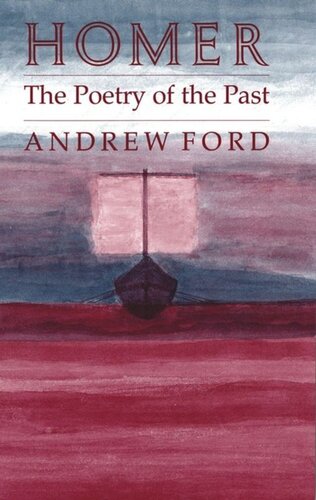

Most ebook files are in PDF format, so you can easily read them using various software such as Foxit Reader or directly on the Google Chrome browser.
Some ebook files are released by publishers in other formats such as .awz, .mobi, .epub, .fb2, etc. You may need to install specific software to read these formats on mobile/PC, such as Calibre.
Please read the tutorial at this link: https://ebookbell.com/faq
We offer FREE conversion to the popular formats you request; however, this may take some time. Therefore, right after payment, please email us, and we will try to provide the service as quickly as possible.
For some exceptional file formats or broken links (if any), please refrain from opening any disputes. Instead, email us first, and we will try to assist within a maximum of 6 hours.
EbookBell Team

0.0
0 reviewsAndrew Ford here addresses, in a manner both engaging and richly informed, the perennial questions of what poetry is, how it came to be, and what it is for. Focusing on the critical moment in Western literature when the heroic tales of the Greek oral tradition began to be preserved in writing, he examines these questions in the light of Homeric poetry. Through fresh readings of the Iliad and the Odyssey, and referring to other early epics as well, Ford deepens our understanding of what poetry was at a time before written texts, before a developed sense of authorship, and before the existence of institutionalized criticism.
Placing what is known about Homer's art in the wider context of Homer's world, Ford traces the effects of the oral tradition upon the development of the epic and addresses such issues as the sources of the poet's inspiration and the generic constraints upon epic composition. After exploring Homer's poetic vocabulary and his fictional and mythical representations of the art of singing, Ford reconstructs an idea of poetry much different from that put forth by previous interpreters. Arguing that Homer grounds his project in religious rather than literary or historical terms, he concludes that archaic poetry claims to give a uniquely transparent and immediate rendering of the past.
Homer: The Poetry of the Past will be stimulating and enjoyable reading for anyone interested in the traditions of poetry, as well as for students and scholars in the fields of classics, literary theory and literary history, and intellectual history.